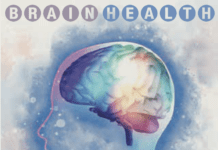Zeaxanthin – Definition – Zeaxanthin is a nutrient found in green leafy vegetables and eggs, often with lutein, both of which have been shown to benefit eye health. Relevance – Lutein and zeaxanthin are the only two naturally-occurring carotenoids that are highly concentrated in the eyes. In the retina, they can reduce the risk of cataracts and age-related macular degenerative by filtering harmful blue light and acting as antioxidants.
Zinc – Definition – Zinc is an essential mineral found in foods such as oysters, beef, crabs, and fortified cereals that is important in cellular metabolism and immune function. Relevance – In the body, there is no storage system for zinc so it must be obtained daily, as it is important in wound healing, immunity, growth and development during pregnancy and childhood; Zinc is often present in over-the-counter cold medications for its purported immune benefits.
Zonulin – Definition – A protein that helps regulate the junctions between the epithelial cells lining the inner wall of the small intestine. Relevance – When a person with celiac disease eats gluten (a protein in wheat, barley, rye and related grains), the gut releases more zonulin, permeability increases and gluten fragments can enter the underlying tissue of the small intestinal wall. That can provoke an immune system response and damage to the small intestine.
























